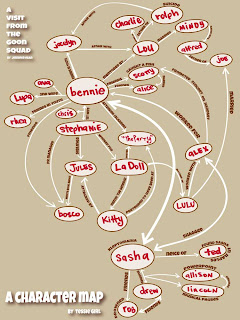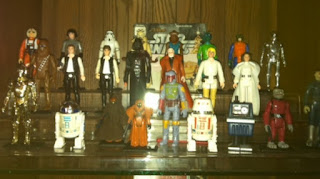Must There Be A Definitive Version of a Novel?
As you may have guessed from my post the other day, I am a pretty big Star Wars collector. One of the biggest joys - and stresses - of collecting any toy line as old and broad as Star Wars is the question of variations. The pic on the left shows that this started right away - Chewbacca went through six major card variations between 1978 and 1985, not counting the nearly infinite versions that feature this sticker or that back - and it continues to this day. I avoid variations by and large. What happens when you reach a certain point in collecting like I have is that, variations are all that's left, and variations are endless.
And expensive.
It got me to thinking though, about variation in fiction. Typically, despite a fascination with looking into the creative process that makes us curious as to what might have been with any one of our most treasured classics, actual, planned variance in novels is pretty uncommon. But must there be a 'definitive version' of a novel?
You see this more in music - the Goldberg Variations for example - where riffs on theme and melody are expected. Also cinema, where 'director's cuts' are ubiquitous. Generally, the novelistic process develops draft after draft that ultimately produces an end product that we consider the authoritative version. Every once in a while though, an author returns to his work and presents a new, 'definitive' version, such as with Stephen King's 'The Stand.'
With the new rise of digital publishing, the potential for this kind of thing increases. You'd think that a writer that self publishes their novel would deliver a definitive version no matter what, as there's no obstacle to it, but with the digital platform, format becomes more malleable. Several writers already serialize their work, and then present a collected version. Some continue to revise. What version then is definitive? The possibilities intrigue me. They allow for experimentation in a way never before permissible - stuck on which direction to take with your book? Take both. Not sure which ending works best? Try both.
The splintering of narrative - the paralleling - possible presents a lot of opportunity. And questions. Must there be a definitive version? Does revision ever really end? Must an author abandon their work, or any one particular vision?
And expensive.
It got me to thinking though, about variation in fiction. Typically, despite a fascination with looking into the creative process that makes us curious as to what might have been with any one of our most treasured classics, actual, planned variance in novels is pretty uncommon. But must there be a 'definitive version' of a novel?
You see this more in music - the Goldberg Variations for example - where riffs on theme and melody are expected. Also cinema, where 'director's cuts' are ubiquitous. Generally, the novelistic process develops draft after draft that ultimately produces an end product that we consider the authoritative version. Every once in a while though, an author returns to his work and presents a new, 'definitive' version, such as with Stephen King's 'The Stand.'
With the new rise of digital publishing, the potential for this kind of thing increases. You'd think that a writer that self publishes their novel would deliver a definitive version no matter what, as there's no obstacle to it, but with the digital platform, format becomes more malleable. Several writers already serialize their work, and then present a collected version. Some continue to revise. What version then is definitive? The possibilities intrigue me. They allow for experimentation in a way never before permissible - stuck on which direction to take with your book? Take both. Not sure which ending works best? Try both.
The splintering of narrative - the paralleling - possible presents a lot of opportunity. And questions. Must there be a definitive version? Does revision ever really end? Must an author abandon their work, or any one particular vision?



Comments